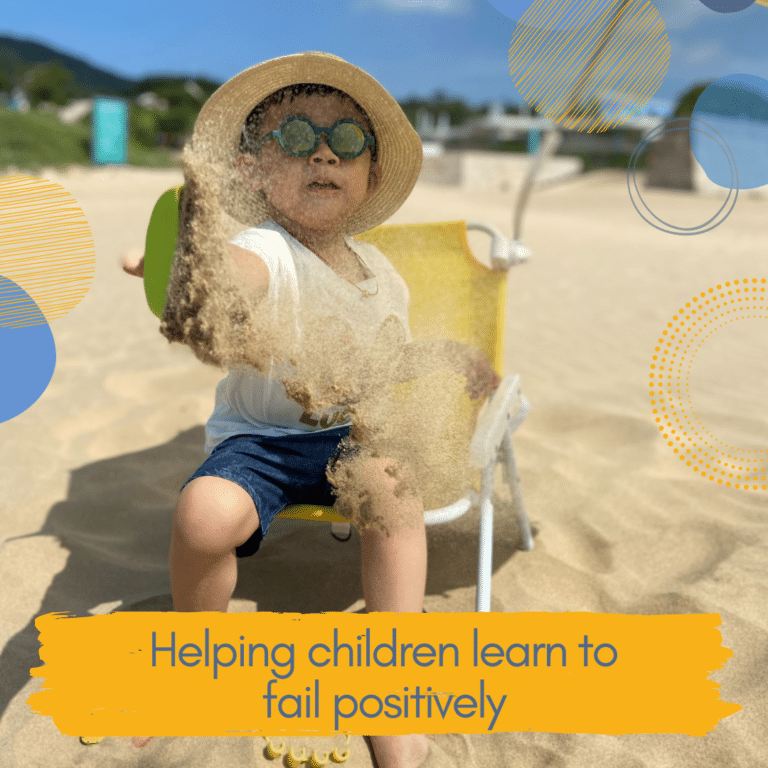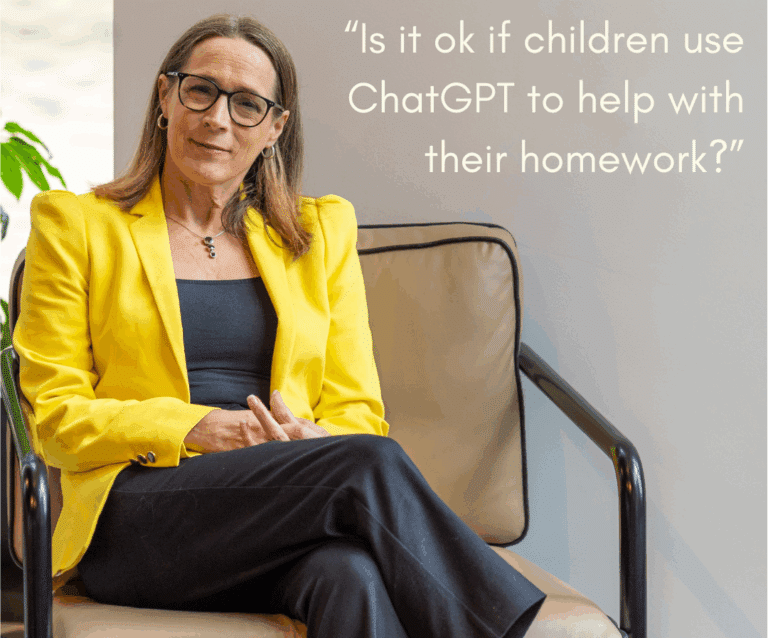Helping children learn to fail positively
Perfectionism is not helpful for children’s learning. Children with perfectionist tendencies will often avoid challenges due to fear of failure, or they may abandon tasks due to frustration and overly high expectations. They can also be extremely sensitive to criticism (while simultaneously highly self-critical) and can get very upset when they make mistakes. Helping children learn to fail positively boosts their learning by making them more open to challenge, and increases their perseverance as they are less likely to give up when things are tough.
But what can parents do to help children learn to fail positively? Telling a child they are good at something when they don’t believe they are is seldom effective. Children often bat away these direct approaches and can be quick to interpret our advice as criticism. A more indirect whole family approach can be helpful here.
Creating a family culture in which failure is celebrated encourages children to view mistakes and challenges more positively. Here are a few ideas for family habits that might help children learn to fail positively:
- Do activities together as a family where getting things wrong (or looking a bit foolish) is part of the fun. For example, a water park obstacle course where slipping off and falling in the water is the whole point.
- Watch what you say when you fail. Try not to call yourself stupid or get cross with yourself if you make a mistake.
- Role model how to reflect on experiences. Look backwards to before an event or activity. For example, you might say “I was a bit nervous about doing X because…,” or “I didn’t want to go to X because…” Then identify what you learned. For example, “But I’m really glad I went because….” It doesn’t have to be just positive reflections. You can also identify what you found frustrating or difficult, how you responded to that and what you might do differently next time.
- Try replacing the word “problem’ with the word “challenge” as often as possible.
- Read stories in which children learn to fail positively or which celebrate learning through mistakes (e.g. see 10 Growth Mindset Books for Younger Kids).
- Role model being brave. Let your child see you taking yourself out of your comfort zone.
- Praise effort and progress more than achievement. Talk out loud and use self-praise too. – “Well done me! I got to the next level!”
- Do activities together in which parents are not the experts. This could be something where your child is the most skilled family member or where you are all learning something new together and someone else is in charge.
- If your child makes a negative statement about themselves, such as “I can’t do it,” add the word “yet.” “You can’t do it yet.”
- Give children chores to do. Contributing to household tasks boosts children’s sense of competence and agency (see Why your children should do chores).
- Don’t contradict your child when they say they are rubbish when they get something wrong. Agree. Say, “Maybe you’re right, maybe this isn’t one of your top talents. But there is usually more than one reason why things go wrong. Are there any other reasons you can think of that might be part of the explanation?” (See How parents can teach optimism)
- Use empathetic listening and emotion coaching for disappointment. It’s ok to feel disappointed if something doesn’t work. If your child is cross with themselves that something has gone wrong, don’t try to convince them not to feel that way. Validate that emotion. “I can see you’re upset it didn’t work. That’s OK. It’s natural to feel upset when something we want doesn’t happen.”
- Model healthy coping skills. When you experience setbacks, model a healthy response. For example, “I’m feeling a bit stressed that my project has been cancelled at work. I’m going to have a sit down with a cup of tea and maybe a long bath later to help me feel better.”
When it comes to helping children learn to fail positively, none of these ideas is a silver bullet. However, if you can try to implement as many of these as possible, that will go a long way to creating a family culture in which failure is seen as a part of learning and challenges are embraced.
You also might find these short videos helpful for helping children learn to fail positively:
If you want help supporting your child’s self-esteem, we offer one-to-one private parenting coaching. We also provide specialised parenting support for parents of anxious children.






